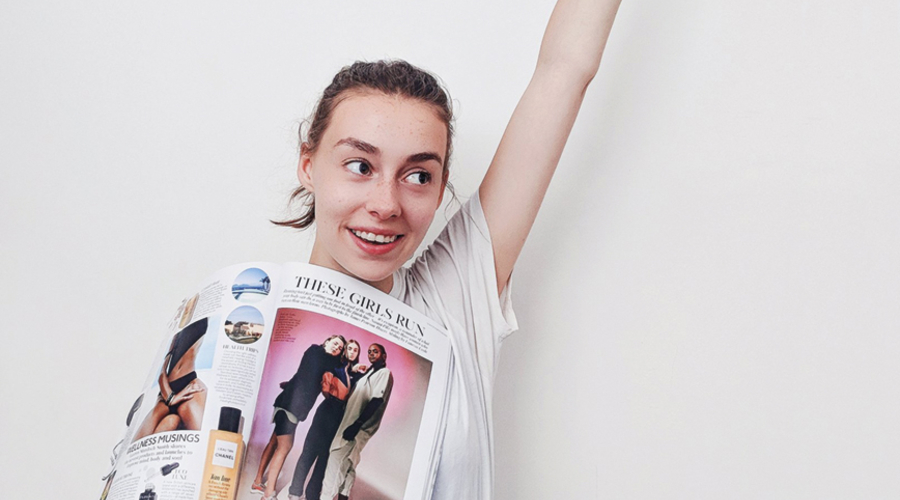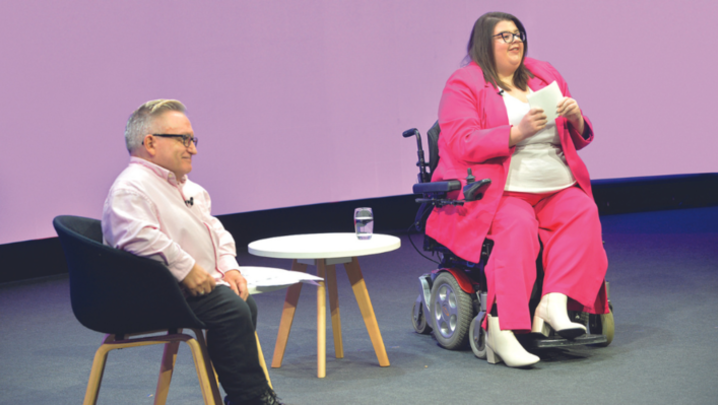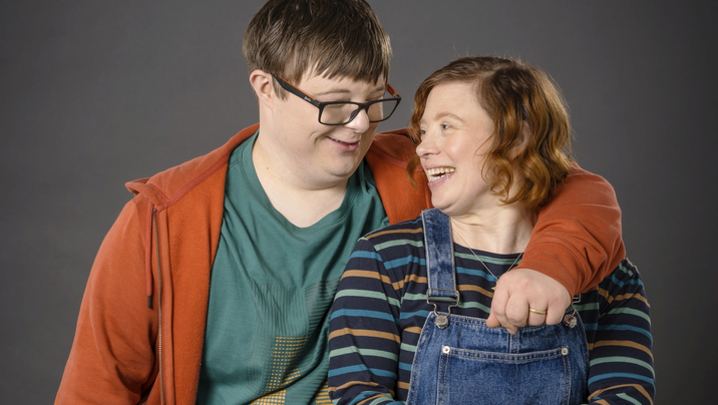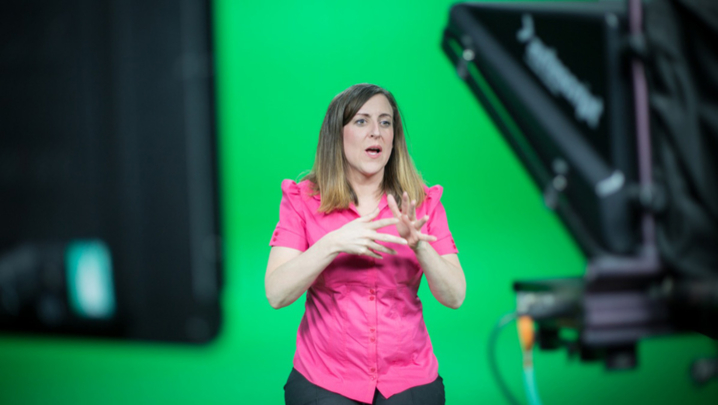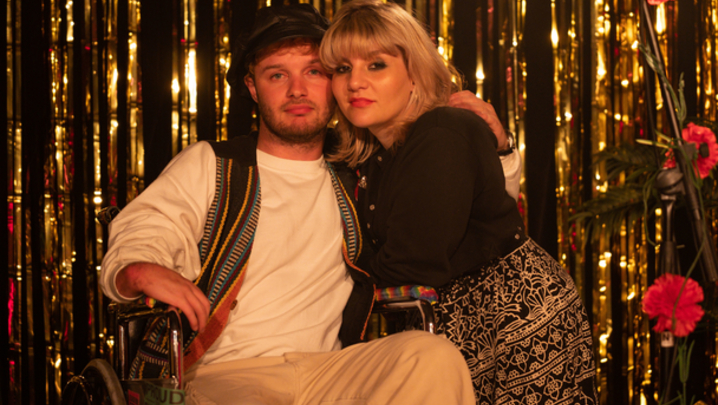Agent Louise Dyson set up VisABLE, a talent agency representing actors, models and presenters with disabilities, 25 years ago after spotting a gap in the market
Having previously owned the largest modelling agency outside of London, Dyson was approached by a manufacturer of mobility equipment, who was looking for wheelchair users to model its products. Together, they launched a modelling competition, receiving over 600 entries and international press interest. The agency has grown and now represents more than 80 actors, presenters and models.
Why did you decide to set up VisABLE?
I’ve got a very clear objective for VisABLE, which is to change the public mindset towards disability by first changing the media mindset towards disability. Organising the “Model in a Million” competition was the proverbial light-bulb moment.
When I first started out, the only time you ever saw anyone with a genuine disability in the media as a model was in a charity appeal with an outstretched hand.
The one thing I would love to achieve is for someone’s disability to be literally unremarkable.
How can casting directors make your job easier?
We’re often approached by casting directors looking to cast someone with a disability, and they come to us with a very specific set of physical characteristics.
That’s usually because they’ve cast everyone else first. Say, if this character is in a family, it means this person has to have a certain accent or be of a particular ethnicity or age, to match the rest of the cast.
They’ve got a massive, almost endless, pool of people for the rest of the family. It would be really good if they started with us and cast the family around the person with the disability.
How can casting directors make life easier for people with disabilities?
You’d be staggered by how many people still arrange for castings in studios that are not physically accessible for people with impaired mobility. They ask to see a wheelchair user, and the audition is on the third floor, and there’s no lift. That’s just astonishing.
People think it’s fine because they’ve got guys who are strong enough to carry the chair, but why on earth put someone at a total disadvantage before they’ve even opened their mouth? They’ve already had an undignified and potentially dangerous experience just to physically get into the room. Why not just go somewhere where it’s step-free?
"A whole generation has grown up seeing disability as completely ordinary."
What do you think about able-bodied actors being cast in disabled roles?
It shows a paucity of imagination to not even look for an actor with a disability who could take that role. If you don’t even look, really suitable people have absolutely no chance of achieving big roles.
We see this a lot in Hollywood. I’m completely aware of the fact that they’re looking for somebody who is “box office” to get something greenlit, but, at the same time, how does anyone achieve that level of profile unless they’re given the chance to at least try for the role?
How do you find new talent?
We don’t actually have to go and look for them, these days everybody comes to us. Every single day we receive masses of new applications, and we also have a backlog of people that we need to respond to.
However, if I spot someone and I think that they have potential, I won’t hesitate to contact them if I can, and ask if they’ve ever considered this kind of work. I spotted someone on First Dates and it turned out he was in our backlog!
How would someone apply?
The back end of our website is a massive, really sophisticated booking system, which is wonderful. On it, we provide everybody with a total blueprint of everything they need to know, from how to achieve great profiles to adding acting clips. It’s all free.
"For the first 14 years, I had no income whatsoever from VisABLE."
What is the best thing about your job?
The thing I’m probably proudest of is getting Cerrie Burnell, who has one hand, cast as a CBeebies presenter a few years ago. It was an uphill battle to get her in that role, but now a whole generation has grown up seeing disability as completely ordinary. Children, of course, educate their parents into reviewing their own preconceptions. I think that’s really powerful.
What has been the most challenging thing about your job?
For the first 22 years of VisABLE, I did everything completely single-handedly. I had no help whatsoever, and I would literally work through every single night. Working from home gives you that possibility. For the first 14 years, I had no income whatsoever from VisABLE. I sold my old business, which enabled me to run the company without needing to take an income. I didn’t take a holiday for 20 years.
What changed?
Channel 4 rang me out of the blue. It was August 2016 and they said that, after the Paralympics, they were really keen to build on that success. They were looking to see where they could make the greatest impact in helping to get more people with disabilities on television, and they concluded that VisABLE was the best conduit.
Somehow, they had found out that I had no help, and they said they would pay for an assistant for me for a year, who ended up doing it for a year and a half. It was just fantastic.
There is still far more work than just the two of us can cope with, but it just made it possible to draw breath occasionally.
What is the worst thing about your job?
The paperwork. The contracts are very, very, very long indeed. Perhaps unlike other people, I read every page on a contract, and I renegotiate the terms if it’s not what I feel we’ve agreed or what’s best for the artists. If I really wanted to spend my days doing that, I would have been a lawyer.
What’s your advice for people wanting to cast more disabled talent?
I wish people would ask us any questions they’re concerned about.
The people at the top of their game already do this. They pick up the phone and say, “We’re casting for someone with Downs syndrome, but I’ve never actually met anyone with it and I don’t know what to expect, can you tell me?”
That’s wonderful, because it gives me the opportunity to immediately dispel any concerns they have.
Louise Dyson was interviewed by Pippa Shawley.

